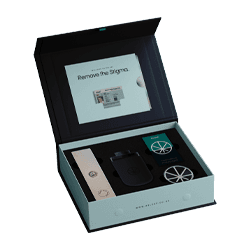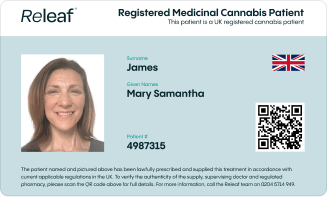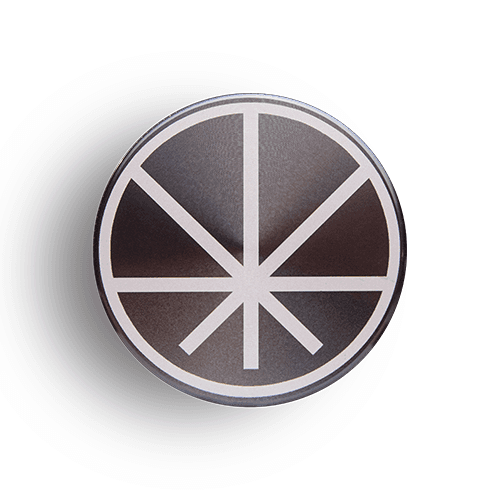Introduction to the importance of a balanced diet
Our bodies require nutrients, minerals, vitamins, essential fatty acids and other naturally occurring ingredients to keep us functioning healthily because we do not produce them ourselves. The only way for us to get them is through our food, which is why eating the right foods (and not just what is most convenient!) plays an important role in maintaining a healthy system.
Our immune system is under a lot of pressure, and when it isn’t operating optimally, it makes us susceptible to illness. We are biomechanical machines, and just like a car if you don’t top it up with water, oil and fuel, it will run dry, and some damage may be irreversible.
The world is becoming increasingly hectic, and cutting corners to make enough time seems to mean skipping meals or taking the quick option - which is often less healthy. With so much going on without much let-up, it can become habitual, and before you know it, a health problem has crept up on you. Let’s digest the topic together.
The challenges of mantaining a balanced diet
Around half of British people admitted they do not know the right information about the food or nutrition ingredients they require daily. No idea about protein needs, types or amounts, how much sugar is acceptable before it starts causing problems, and how much fat or salt is necessary.
There are many reasons for this information deficit, and Britain is no exception; it's a global issue. People’s work/life balance is a major contributing factor causing people to skip meals or appear lazy and stick to simple and unbalanced microwave or “just add water” solutions.
On the plus side, the UK government's statistics from 2019/20 on eating habits suggest that 55.4% of adults aged 16 and over had 5 or more portions of fruit and vegetables daily.
Since this data, 62% of Britons have said they have altered their diet to include more fruit and vegetables. There's also been an increase in people checking nutritional information and cooking their own meals, with a fifth of people looking for healthier recipes.
During the cost of living crisis, we have seen food prices rise dramatically, and at times during COVID-19 and since BREXIT, the UK has suffered periods of food shortages.
Many people have been forced into alternative options that may not provide as much valuable nutrition as previously available. It will fill the gap but may not contain enough of what you need. Although times have been difficult, it is important to keep an eye on what you’re putting into your body so it can sustain how brilliant you are inside and out.
Big picture eating
A lack of public education or reinforcement of healthy food choices and variation is important. That’s why we are talking about it here. We want people to get the help they need with legal medical cannabis availability, but we also know there are other things you can do to give your body its best chance.
Becoming aware of your Daily Recommended Intake of the necessary nutrition is the first step to starting a balanced diet. Researching what foods have in them and how much of it will give you an idea of what food to eat. Most of this research has been done for you so finding answers isn’t too difficult.
Get yourself a cookbook that meets your flavour requirements and has recipes that match the time you’ve got in the kitchen. This is a problem everyone is facing so you’ll be happy to see so many choices in this reading department. Or find yourself a cooking blog to follow that does the same thing.
People who cook their own food have healthier diets and bodies. Natural foods come in all colours and shapes so that you can be creative with your eating. Make your plate colourful with different vegetable varieties and feed yourself an orchestra of beneficial essential dietary compounds.
Many foods that are good for us and have been reported to have medical benefits, contain cannabinoids and similar chemicals that activate the endocannabinoid system.
Olive oil contains olivetol and olivetolic acid which are building blocks of phytocannabinoids CBG, THC and CBD. It is high in omega-9 essential fatty acids and has incredible immune-boosting properties. It’s great for your joints and skin and improves bone density. Interestingly, it is a glycemic regulator, helping stabilise blood sugar, improving insulin sensitivity, and reducing overall calorie intake by improving satiety. People in Mediterranean countries live longer; olive oil is a key dietary element.
Omega essential fatty acids are also found in fish and other seeds like hemp seed.
Many vegetables contain antioxidants, some that interact with the endocannabinoid system and have anti-inflammatory effects that help to reduce overall stress and help balance mood.
Taking a proactive approach to good eating habits
Our main meals aren’t the only problem. As a nation of commuters, office workers and tradespeople, our workforce is known for loving a snack. Nestle, the world's food conglomerate giant, believes that 87% of the UK is a snacker! And the choices we often make are not the best, as many ready-to-grab snacks are sugar-loaded and full of empty calories, providing no real nutritional benefit.
If anything, research suggests that the UK is facing a public health crisis with diabetes diagnoses already over 3.8 million. A further 1 million are living without a diagnosis. In all 1 in 10 adults over the age of 40 have the diagnosis. Over 90% of that number have Type 2 diabetes, a condition controllable through diet and is caused by excessive amounts of sugar intake, 90%. A further 2.4 million people are at risk of developing it because of an unbalanced and unhealthy diet with a lack of exercise.
Being present when you make your food choices could be one of the best changes you make to your health, well-being and overall quality of life.
But are all fast-snack options the same? Some companies, like Huel, offer people operating a busy lifestyle with a fully nutrient-loaded all-in-one drink. They’ve recently expanded their range to meals that ensure you have complete proteins and the right balance of carbohydrates so as not to cause energy crashes.
Try supplements, but don’t forget to stay natural
Sometimes, when we notice that things aren’t as optimal as we would like, we need to turn to something stronger for a more appropriate and fast-acting solution.
The active and beneficial compounds found in most fruits and vegetables are in low concentrations, and the studies that show what kind of effect they may have in isolation don’t match what you can eat naturally.
There's a gap in a lot of the evidence that translates the science to supplements, but many studies have shown a benefit. It is important to know supplements are there to be utilised when needed but should not be seen as a replacement for eating a varied healthy natural diet regularly.
For people with digestive issues, malabsorption and bioavailability troubles, supplements might offer a solution that allows you to still benefit from these chemicals. If you have a serious medical diagnosis and you are struggling with your diet or nutrient absorption issues, you should see your GP and ask for a referral to a nutritionist.
They will be able to assess your diet and, with their expertise, identify changes you could make. You may be eating certain foods that you shouldn’t be eating because they cause malabsorption of other foods.
Overall
Hopefully, we’ve put enough food for thought on your plate to consider if your diet could need a New Year's resolution.
There is a lot to consider when trying to create and maintain a balanced, healthy diet, and if you have medical issues, these can be worsened when the diet you need isn’t sustained.
Changing your diet isn’t going to cure your medical diagnosis, but it can play a role in your overall well-being and quality of life.
Taking note of the nutritional value of the foods we eat, especially if switching products, is important to remember and, over time, could lead to improvements in energy levels, weight, and mood stability.






